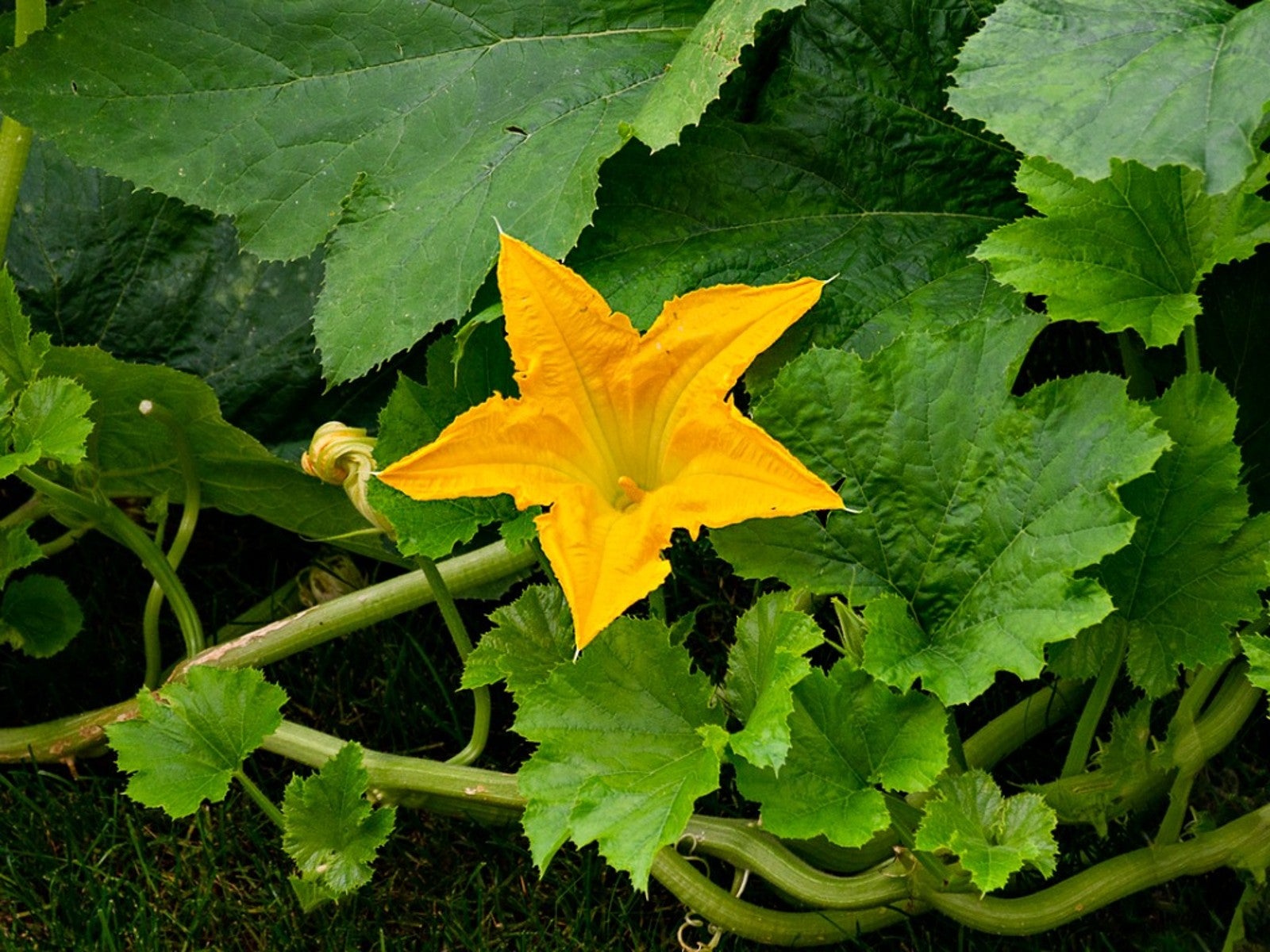Stem Splitting In Squash, Cucumbers, And Melons


Sign up for the Gardening Know How newsletter today and receive a free copy of our e-book "How to Grow Delicious Tomatoes".
You are now subscribed
Your newsletter sign-up was successful
Growing your own produce takes time, money, and energy. Losing these crops can be frustrating, especially when you don't know the cause. If you're experiencing issues with cucurbit plant stem splitting, let's look at some possible causes and what can be done to prevent these problems.
Squash, Melon, and Cucumber Stem Split
Several circumstances can cause stems to split on maturing cucurbit crops. These plants often have long, hollow stems that can be easily damaged by the weight of the foliage or fruit. Splits, tears, and twisted stems can be especially problematic after a windy storm. If this happens frequently, try locating the cucurbits in a sheltered location against a wall or solid fence.
Damage can also occur when animals, such as deer or the neighborhood dog, decide to walk through the garden. If the animal steps on or gets tangled in the vine, damage can occur which could result in a split. Installing a fence around the area or trellising cucurbit vines are the best ways to protect them from this type of damage.
Cucurbit pests also cause damage to vines, which can lead to squash or cucumber vine splitting. In particular, the larvae of the squash vine borer will make entrance holes in the stem and then tunnels inside the vine to feed. These creamy white, maggot-like larvae are most active during late June and early July. Use crop rotation and floating row covers to prevent adult moths from laying eggs near cucurbit crops.
Environmental changes are another possible cause of cracked stems in cucurbits. This can occur when root-bound seedlings are transplanted into the garden. The sudden abundance of nutrients, water, and space can cause rapid growth resulting in weak stems that are prone to cracking. Rain after a dry spell or improperly timed fertilizer can also cause rapid growth spurts in older plants. When this happens, cover the split vine with soil to encourage rooting and prevent pests or diseases from gaining access to exposed plant tissues.
Cold Damage and Cucurbit Crops
If you're finding a cucumber, melon, or zucchini stem split, the most likely cause is cold damage. As a warm weather crop, cucurbits can suffer cold damage when the temperature drops to 40 degrees F. (4 C.) or below. Yet, cold injury is cumulative. A few cold days in the 50 to 60 degree F. (10-16 C.) range can be just as damaging as a brief dip in the 40s.
Splits from cold damage are often observed near the soil line. While these injuries will often heal over, they provide an entry point for plant diseases and pests. In addition, a split stem creates a weak spot that is more prone to break or twist in windy conditions.
Sign up for the Gardening Know How newsletter today and receive a free copy of our e-book "How to Grow Delicious Tomatoes".
To prevent the cold weather from damaging cucurbit crops, consider transplanting seedlings only after warm summer temperatures have arrived. Alternatively, covering cucurbit crops with row covers or low tunnels will trap heat from the ground. These practices can keep the air inside five to ten degrees warmer.
Should you find a cucumber, melon, or squash stem split, bury the injured section of vine, or apply a fungicide to the damaged area as a preventative measure against diseases.

Laura Miller has been gardening all her life. Holding a degree in Biology, Nutrition, and Agriculture, Laura's area of expertise is vegetables, herbs, and all things edible. She lives in Ohio.